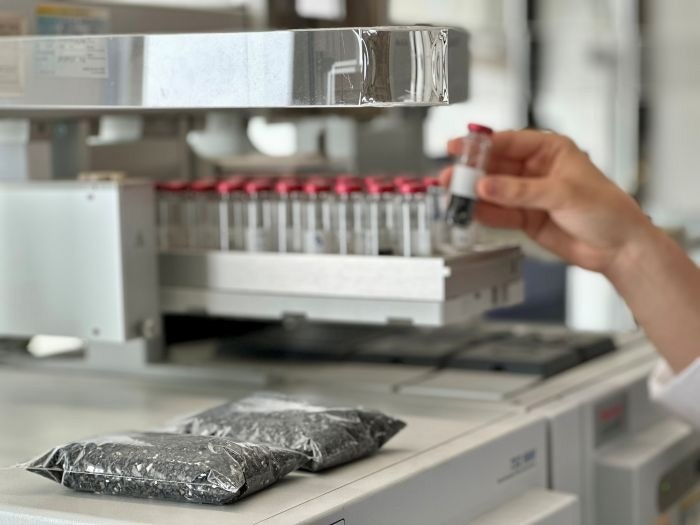The objective of the H2ODOR project is to develop a contaminant-free and odorless thermoplastic material for use in the automotive industry, specifically for vehicle interiors.
The incorporation of 50% recycled plastics in vehicle interiors manufactured in Spain will reduce CO2 emissions by as much as those generated by 158,475 cars in a year.
The automotive sector is the third largest consumer of plastic in the world, behind the packaging and construction sectors.
 Image Credit: AIMPLAS
Image Credit: AIMPLAS
Although many people find the ‘new car smell’ appealing, the reality is that this aroma comes from the release of volatile organic compounds (VOCs), a mixture of chemicals that can have harmful effects on both health and the environment. In response to this challenge, the H2ODOR project was created, a cutting-edge initiative led by AIMPLAS, the Plastics Technology Centre, which pursues a twofold solution: reducing these types of odors and, at the same time, promoting the use of recycled materials in the automotive sector.
The H2ODOR project, funded by IVACE+i and the ERDF funds, focuses on the creation of new thermoplastic materials based on post-consumer recycled polyolefins, free of contaminants and odors, specially designed for use in vehicle interiors. These new materials must not only meet the sector's strict technical requirements (such as thermal resistance and UV radiation behavior), but must also be sustainable, cost-effective and pleasant for the end user.
To this end, the project will focus on optimizing the pre-treatment of recycled plastic by incorporating advanced water-based decontamination and deodorization technologies, with the aim of significantly minimizing the presence of volatile compounds inside the vehicle.
‘Our goal is to demonstrate that it is possible to manufacture high-quality recycled materials with low environmental impact and reduced odor that are competitive for use in vehicle interiors. It is a clear commitment to the circular economy without compromising safety and comfort,’ said Juan Alfonso Naranjo, researcher in Sustainable and Future Mobility at AIMPLAS.
H2ODOR involves the participation of Fych Technologies, which specializes in plastics recycling using transformative technologies and will employ its own water vapor-based odor elimination technology, and Faperin, a company with extensive experience in the manufacture of parts using plastic injection molding.
Promoting the Circular Economy in the Automotive Sector
Beyond the technical aspect, the H2ODOR project is aligned with the European Commission's new legislative proposal that seeks to increase the incorporation of recycled plastics in the automotive industry, a sector that represents a great opportunity for material circularity.
The automotive sector is the third largest consumer of plastic worldwide, behind the packaging and construction industries. The increase in the use of plastics in vehicles is closely linked to the reduction of CO2 emissions, as many components, both interior and exterior, are being replaced by plastic materials. Being lighter, they contribute to lower energy consumption during the vehicle's lifetime.
In this context, it is worth noting that the incorporation of 50 % recycled plastics in the interior parts of vehicles manufactured in Spain will reduce CO2 emissions by an amount equivalent to that generated by 158,475 vehicles in one year.
‘The automotive industry is one of the most demanding sectors, but also one of the most strategic for applying advanced recycling solutions. With this project, we want to offer a sustainable and viable alternative that contributes to the fulfilment of the new European objectives,’ said Naranjo.
SDGs and Real Sustainability
In addition to its technological component, the project has a strong social and environmental impact. It is aligned with several Sustainable Development Goals (SDGs), such as decent work and economic growth (SDG 8), innovation and sustainable infrastructure (SDG 9), improving sustainability in cities (SDG 11) and promoting responsible production and consumption patterns (SDG 12).
‘H2ODOR is another step towards cleaner, safer and more responsible mobility. It demonstrates that innovation in materials can have a direct impact on people's health and the sustainability of the environment,’ concluded the researcher.
This project is funded by the Valencian Institute of Competitiveness and Innovation (IVACE+i), through the Strategic Cooperation Projects program in its 2024 call for proposals, and ERDF funds.